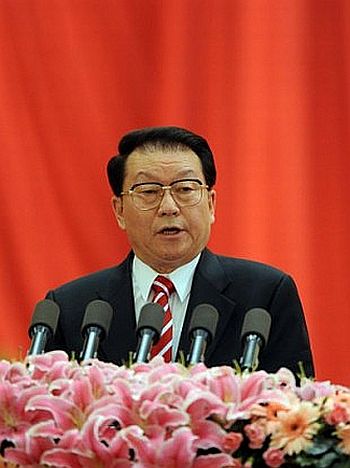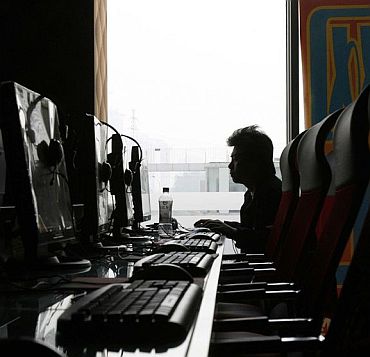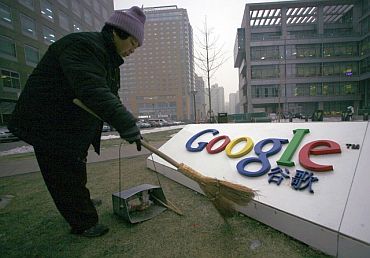
The "politically-inspired" hacking of the US-based Google that forced it to withdraw from China earlier this year was orchestrated by a top leader of the ruling Communist party after he found internet search results critical of him, according to leaked American cables.
The latest round of WikiLeaks disclosures published by the UK's Guardian newspaper claimed that Li Changchun, who is ranked fifth in the Chinese Communist Party politburo, became hostile to Google after he searched his own name and found articles criticising him.
"That single act prompted a politically-inspired assault on Google, forcing it to 'walk away from a potential market of 400 million internet users' in January this year, amid a highly publicised row about internet censorship," the newspaper quoted a classified document sent by US diplomats in Beijing to Secretary of State Hillary Clinton as saying.
The explosive allegation that the attack on Google came from near the top of the ruling Chinese Communist party had never been made public before.
The politician allegedly collaborated with another member of the politburo in an attempt to force Google to drop a link from its Chinese-language search engine to its uncensored google.com version.
A cable from the US embassy here marked as secret said that the attempts to break into the accounts of dissidents who used Google's Gmail system had been coordinated "with the oversight of" Li and Zhou Yongkang, ranked ninth in the politburo.
Zhou had visited India recently and met leaders of the ruling and opposition political parties to discuss ways to improve the India-China ties.

The cyber assault was described to the Americans by a high-level Chinese source as "100 per cent political in nature" and having "nothing to do with removing Google... as a competitor to Chinese search engines," the leaks said.
Cyber detectives had speculated at that time that the attacks may have been launched from the Communication University in Shanghai and the Lanxiang Vocational Training School in the eastern province of Shandong.
"According to our contact, the operation was ordered at the level of the standing committee of the politburo," said the secret US embassy cable.
Excerpts of the latest leaked cables were also published by German news weekly Der Spiegel.
The US embassy had received unconfirmed information that two members of the politburo personally coordinated the attacks against the American Internet giant.

While one source of the Americans speculated that the cyber onslaughts may have been aimed at getting rid off Google, a major rival to the Chinese search engine Baidu, other information received by the US diplomats said there was no economic motive for the operation, but it was 100 per cent political in nature, the cable showed.
Google complained in January that its entire system is being subjected to highly sophisticated and well-targeted attacks from China. It also reported that hackers were trying to break into its e-mail accounts of Chinese human rights activists.
The cable said it was unclear whether Chinese President Hu Jintao or Prime Minister Wen Jiabao were aware of these actions before Google raised its concerns.

American diplomats also spoke of the Chinese leadership's concern that by challenging the country's censorship, Google became more interesting and attractive to Chinese internet users.
All of a sudden, Baidu looked like a boring state-owned enterprise while Google seemed very attractive, like the forbidden fruit, they wrote.
In another cable, American diplomats warned that the root of the problem was one politburo member, who wanted the company to remove a link to the uncensored google.com site from its sanitised Chinese version google.cn.
Google China has resisted that step against company principles, though it has taken other smaller measures to try and placate the government, the cable said.